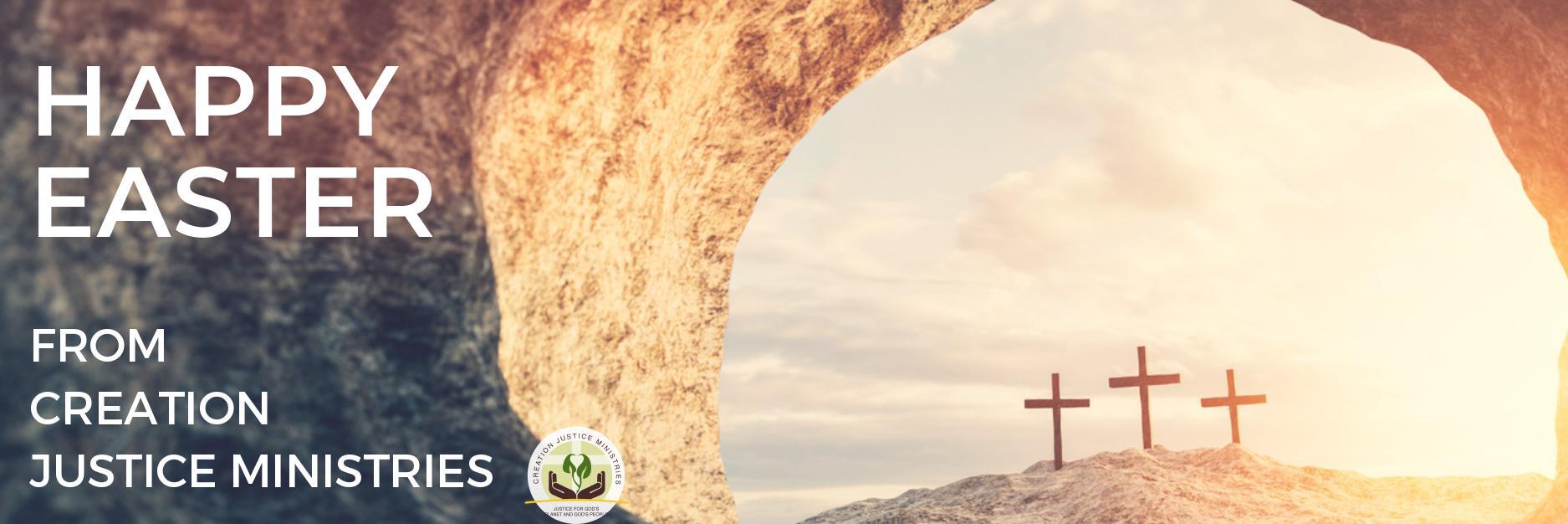|
by Derrick Weston During my seminary years, I took a class on social justice at a Franscican school. During our section on environmental justice, I noticed one of the passages in the lectionary for Easter was Romans 8:18-25. I had never seen those particular verses connected to the Easter story before and as I read them, a thought occurred to me for the first time: what if the life, death, and resurrection of Christ was meant to benefit more than humanity? I’ve revisited this passage many times since and every time, the question comes back to me. Romans 8 is a discourse on what new life in Christ means for us as believers. But Paul doesn’t limit the impact of this new life to humanity, but instead claims that the resurrection of Christ has a ripple effect that moves out from us into the rest of the created order. In fact, he argues that the creation has been waiting for us to remember our true vocation as children of God. From the earliest stories of creation we are given a brief glimpse of what it might look like for us as humans to live in right relationship with our non-human neighbors. In those glimpses, we see ourselves as protectors, defenders, co-creators, and servants tending to the needs of the earth. That glimpse doesn’t last. Before too long, our “dominion” turns to domination and our relationship to the created world is reduced to what it can do for us and what we can take from it. This is not how it should be. The resurrection of Christ has a ripple effect that moves out from us into the rest of the created order. But the good news of the Gospel is this: the salvation that comes from the life, death, and resurrection of Christ is not a salvation that waits until we reach the next world but it is a salvation intended for the redemption of this world. In Christ we are given new life and that new life includes a renewed and restored relationship to our non-human neighbors. We are redeemed from the need to dominate and control and set free to work alongside nature in ways that are beneficial for us all. Our Earth Day resource includes the story of Ray Archuleta, a farmer and soil scientist. Ray recognized the diminishing returns of conventional agriculture and instead adopted regenerative practices that work with the natural cycle and improve both the quality of the soil’s health and produce healthier food. Ray understands that our vocation as children of God is to work with nature, not to rule over it. The creation has been groaning, Paul says, waiting for those of us who call ourselves God’s children to remember our first vocation, the vocation of serving, tending to, and protecting the created order. Easter is a reminder that we can be renewed in our relationship to God, to our neighbors, and to our non-human neighbors. As we enter into this Easter season, may we seek new ways to embody resurrection and take heed to the cries of creation. As we enter into this Easter season, may we seek new ways to embody resurrection and take heed to the cries of creation.  Derrick Weston is the Theological Education and Training Coordinator at Creation Justice Ministries.
0 Comments
Your comment will be posted after it is approved.
Leave a Reply. |
About this BlogThis blog shares the activities of Creation Justice Ministries. We educate and equip Christians to protect, restore, and rightly share God's creation. Archives
July 2024
Categories
All
|
Photo from johndillon77

 RSS Feed
RSS Feed